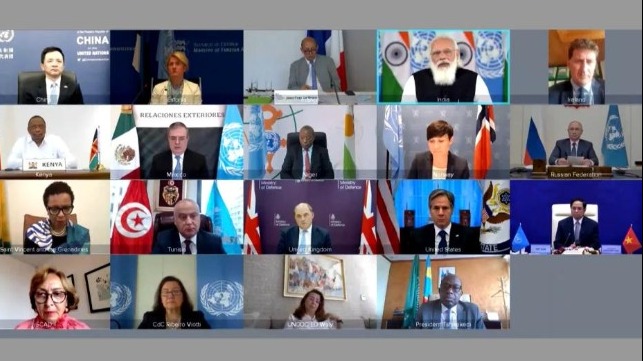Why the Maritime Industry Needs to Pay Attention to Recent UN Debates

Within the past two weeks, the United Nations Security Council held two debates on maritime security. One was a discussion on August 6 of the recent incident in the Gulf of Oman, the drone attack on the MV Mercer Street that had two crew killed. A major open debate on maritime security was held three days later. The Council has been pro-active in maritime security for a while, in particular, in order to address piracy off the coast of Somalia and in the Gulf of Guinea. Yet, the recent debates prove that the Council increases its awareness for maritime matters. There are at least five lessons for the maritime industry.
The debate on the MV Mercer Street attack, firstly, documents that Council members pay now high attention to security incidents at sea and threats to the freedom of navigation. While there was no direct outcome from the debate, the fact that this debate was held within a week of the attack indicates that we can expect the Council to monitor and respond to maritime incidents much more rapidly and significantly than it has done in the past.
The open debate on maritime security, secondly, was remarkable in terms of the high level of representation. Maritime security was addressed on the level of heads of state, with among others the prime minister of India, the presidents of Russia and Kenya addressing the Council, while other members, such as the United States and France, were represented by ministers of foreign affairs or defense. This proves that in the eyes of the Council, maritime security is now a top priority.
A broad range of issues were flagged at the debate ranging from threats to freedom of navigation, to maritime terrorism, different forms of blue crime, including piracy, smuggling or illegal fishing as well as climate change and marine accidents. Not all of these issues are direct concerns for the maritime industry. Indeed, the debate showed that the international community has no consensual understanding of which maritime security issues should be prioritized and whether it is economic or environmental concerns that most urgently need to be addressed.
The alertness of the Security Council, moreover, indicates that the center of gravity of the maritime security debate is gradually shifting away from the International Maritime Organization towards New York. This not only implies that the maritime industry needs to ask itself what lines of communication it has to the UN Secretariat and Council members but also how the maritime industry associations might want to have a voice in future debates.
One of the major proposals that came out of the open debate highlights that importance. Russian president Mr. Putin called for a new institutional structure for maritime security, while India’s prime minister Mr. Modi plead for a new framework for collaboration to be developed. While the implementation of a new structure, which might well imply a new United Nations body, will be a complicated process and not settled quickly – as it is usual at the UN level –, the maritime industry needs to ask itself how it wants to contribute to the debate.
A new United Nations commission, committee, or forum for maritime security will most likely not replace the various regional arrangements, such as the Regional Cooperation Agreement on Combating Piracy and Armed Robbery against Ships in Asia (ReCAAP), but rather complement it by coordinating the global level. In the regional mechanisms the maritime industry has a strong voice and is a pro-active contributor. Concrete strategies will be required of how the industry wants to contribute to the new global process.

that matters most
Get the latest maritime news delivered to your inbox daily.
The new awareness of the international community for security at sea is most certainly welcome, not the least to ensure the safety of supply chains. As the case of the adoption of the International Ship and Port Facility Security Code documents, new measures developed under the security agenda can be costly for the maritime industry. Paying close attention and bringing the voice of the industry to New York is hence indispensable.
Christian Bueger is a professor at the University of Copenhagen and one of the directors of SafeSeas.
The opinions expressed herein are the author's and not necessarily those of The Maritime Executive.
